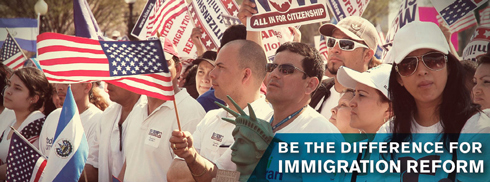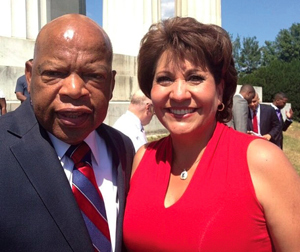Latino leader: King's vision is ours, too
By Nailah Muhammad -Contributing Writer- | Last updated: Aug 28, 2013 - 9:23:54 AMWhat's your opinion on this article?

|
WASHINGTON (FinalCall.com) - Year 2013 marks the 50th anniversary of the historic March on Washington and Martin Luther King Jr.’s widely referenced “I Have a Dream” speech. In true commemoration, we must not simply recite, march, and reenact the physical rituals that symbolize the great efforts our predecessors did to create a new reality; we must strive to invoke the self-less spirit that led to the march.
The mission of Dr. Martin Luther King, Jr. transcended racial identity and ethnic origin, and served the purpose of improving the overall human condition. This concept is perfectly expressed in words from his Letter from a Birmingham Jail: “Injustice anywhere is a threat to justice everywhere.”

|

Congressman John Lewis and Janet Murguía President and CEO of National Council of La Raza Photo Courtesy, National Council of La Raza
|
“We must remember, now more than ever, that in unity, there’s power ... we need to be connected, connected among African-Americans but connected to other communities as well, because in that unity there is power to advance our common agendas and in that unity, we can move mountains.”
INSIDE STORIES AND REVIEWS
-
-
About Harriett ... and the Negro Hollywood Road Show
By Rabiah Muhammad, Guest Columnist » Full Story -
Skepticism greets Jay-Z, NFL talk of inspiring change
By Bryan 18X Crawford and Richard B. Muhammad The Final Call Newspaper @TheFinalCall » Full Story -
The painful problem of Black girls and suicide
By Charlene Muhammad -National Correspondent- » Full Story -
Exploitation of Innocence - Report: Perceptions, policies hurting Black girls
By Charlene Muhammad -National Correspondent- » Full Story -
Big Ballin: Big ideas fuel a father’s Big Baller Brand and brash business sense
By Bryan Crawford -Contributing Writer- » Full Story






 Click Here Stay Connected!
Click Here Stay Connected!








